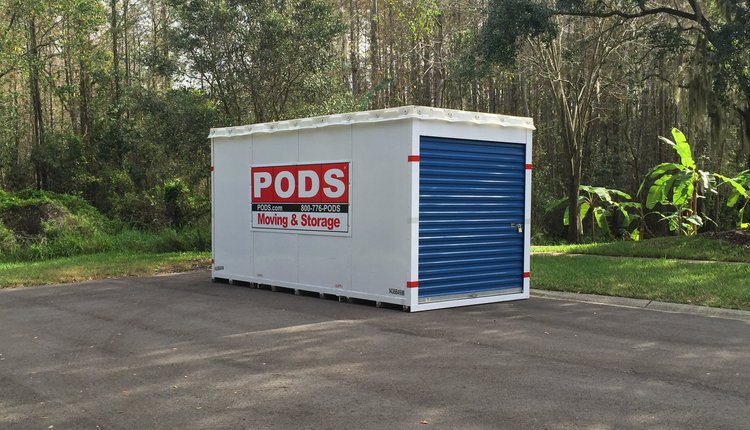In a previous "Man Up" article, I proposed that since the parcel carriers have tremendous IT capability, and since they have the origin zip code, destination zip code, service level requested, weight, and so on, that with all their scanning milestones in their data base, they should be able to pre audit their service performance, and if the carrier failed to provide the service that was guaranteed at the time of tender, that they should zero bill or credit the shipper for the transaction.
Should we not then discuss why it is that the carriers can logically allow shippers to do financial damage to themselves?
Let's take a hypothetical 5 pound package going from Norwalk Ct. where my buddy George Yarusavage (another Parcel contributer) lives and being shipped to Villanova Pa. where I went to college.
And let's assume I drop that package off at FedEx. (I'm not picking on FedEx here, because as you will see the premise applies to UPS as well). The carrier allows me to purchase 2 day service for a price of $29.76. I can also opt for express Saver 3 day service for $ $14.47. Now my experience in the business tells me that both of these shipments most likely will move through the Newark hub and never transit on an aircraft from Connecticut to Pennsylvania.
FedEx offers a guaranteed overnight ground service between these two zip codes (06850 to 19085) and the price is $8.49 (if I don't enjoy a negotiated discount).
There are a number of glaring, painful truths in this scenario.
First, I know from my time in the business that most shippers lack discipline and they leave thousands of dollars on the table by not selecting the optimum combination of PRICE & SERVICE. I saw it at Airborne and DHL, and I have seen it in the invoices of my clients using the services of other carriers.
Employees within corporations should not be telling the transportation professionals responsible for their firms supply chain costs, how to get a shipment from point A to point B, but to just articulate when the transaction has to be delivered and leave it to the professionals to optimize the mode to satisfy the need.
At the very least management at firms that ship should print out the carrier provided ground service guarantee maps from their zip code and post them in every cubicle in the company and try to encourage prudent mode selection and stewardship of the corporate piggybank.
Second, the logistics professionals need automation to handle today's volumes effectively and to correctly make the optimum routing decision. There are route optimization software solutions available and your employer should be using them.
Third, in negotiating with your carrier, leverage the fact that the carrier is not putting the second day air shipments, and the three day air shipments, (and often the next day air shipments) in the air, but substituting surface transportation for the line haul.
Now grant this difference in operating cost is reflected in the fact that there are lower air prices for zones 2 and 3 vs. say 7 or 8, however, the carrier knowingly charges their air fuel surcharge on these shipments when in fact a large percentage of your shipments never see an aircraft. If the carrier acknowledges that argument, then perhaps you have a negotiating position to ask for, and receive, a percentage off the air fuel surcharge to keep you whole for those shipments that never result in the consumption of an ounce of Kerosene Jet A — the fuel used for the calculation of the air fuel surcharge.
But the higher road should be taken by the carriers. If they offer guaranteed next day ground delivery then they should have an automated method and means prevent you from paying the exceedingly higher prices for three day (Express Saver) or two day air service if ground can get there in equal or lesser time.
And if the ground service is guaranteed in two business days, then again they should not be allowing you logically to select three day air service or two day air service. (I'm sure some carrier reps will get their undies in a bunch and argue that some shippers don't want the cheaper next day service, that they really want to pay to or three time the amount for the slower air guarantee so as to accomplish "day definite" delivery — yes this happens from time to time but the carriers can use IT to make sure shipments get delivered on a specific day — the carriers have the capability to do it, they have done it, and perhaps the carrier should be thinking of customer care and putting the customer first rather than extracting extraordinary revenue's for a particular movement).
Perhaps the time has come for mode agnostic tariffs. You specify the day and time frame you want a particular shipment delivered within and the carrier chooses the optimum combination of price and service for you to accomplish that task. Execution of this strategy is more easily accomplished by UPS because air and ground are seamlessly woven together, whereas at FedEx air and ground have currently, separate and autonomous operating units. For example with UPS you have one delivery person for your air and ground packages and with FedEx you have an Express courier who is a FedEx employee delivering air and a contractor delivering your ground package. At the end of the day, that is their choice and can still route your package at the time of tender into the correct network for transport and delivery.
The way it works today the carriers just sit back and laugh at the stupidity of their customers.
Isn't it time to deploy the technology already in hand and in use for creative, collaborative, customer centric, win-win intelligent routing and pricing?
Should we not then discuss why it is that the carriers can logically allow shippers to do financial damage to themselves?
Let's take a hypothetical 5 pound package going from Norwalk Ct. where my buddy George Yarusavage (another Parcel contributer) lives and being shipped to Villanova Pa. where I went to college.
And let's assume I drop that package off at FedEx. (I'm not picking on FedEx here, because as you will see the premise applies to UPS as well). The carrier allows me to purchase 2 day service for a price of $29.76. I can also opt for express Saver 3 day service for $ $14.47. Now my experience in the business tells me that both of these shipments most likely will move through the Newark hub and never transit on an aircraft from Connecticut to Pennsylvania.
FedEx offers a guaranteed overnight ground service between these two zip codes (06850 to 19085) and the price is $8.49 (if I don't enjoy a negotiated discount).
There are a number of glaring, painful truths in this scenario.
First, I know from my time in the business that most shippers lack discipline and they leave thousands of dollars on the table by not selecting the optimum combination of PRICE & SERVICE. I saw it at Airborne and DHL, and I have seen it in the invoices of my clients using the services of other carriers.
Employees within corporations should not be telling the transportation professionals responsible for their firms supply chain costs, how to get a shipment from point A to point B, but to just articulate when the transaction has to be delivered and leave it to the professionals to optimize the mode to satisfy the need.
At the very least management at firms that ship should print out the carrier provided ground service guarantee maps from their zip code and post them in every cubicle in the company and try to encourage prudent mode selection and stewardship of the corporate piggybank.
Second, the logistics professionals need automation to handle today's volumes effectively and to correctly make the optimum routing decision. There are route optimization software solutions available and your employer should be using them.
Third, in negotiating with your carrier, leverage the fact that the carrier is not putting the second day air shipments, and the three day air shipments, (and often the next day air shipments) in the air, but substituting surface transportation for the line haul.
Now grant this difference in operating cost is reflected in the fact that there are lower air prices for zones 2 and 3 vs. say 7 or 8, however, the carrier knowingly charges their air fuel surcharge on these shipments when in fact a large percentage of your shipments never see an aircraft. If the carrier acknowledges that argument, then perhaps you have a negotiating position to ask for, and receive, a percentage off the air fuel surcharge to keep you whole for those shipments that never result in the consumption of an ounce of Kerosene Jet A — the fuel used for the calculation of the air fuel surcharge.
But the higher road should be taken by the carriers. If they offer guaranteed next day ground delivery then they should have an automated method and means prevent you from paying the exceedingly higher prices for three day (Express Saver) or two day air service if ground can get there in equal or lesser time.
And if the ground service is guaranteed in two business days, then again they should not be allowing you logically to select three day air service or two day air service. (I'm sure some carrier reps will get their undies in a bunch and argue that some shippers don't want the cheaper next day service, that they really want to pay to or three time the amount for the slower air guarantee so as to accomplish "day definite" delivery — yes this happens from time to time but the carriers can use IT to make sure shipments get delivered on a specific day — the carriers have the capability to do it, they have done it, and perhaps the carrier should be thinking of customer care and putting the customer first rather than extracting extraordinary revenue's for a particular movement).
Perhaps the time has come for mode agnostic tariffs. You specify the day and time frame you want a particular shipment delivered within and the carrier chooses the optimum combination of price and service for you to accomplish that task. Execution of this strategy is more easily accomplished by UPS because air and ground are seamlessly woven together, whereas at FedEx air and ground have currently, separate and autonomous operating units. For example with UPS you have one delivery person for your air and ground packages and with FedEx you have an Express courier who is a FedEx employee delivering air and a contractor delivering your ground package. At the end of the day, that is their choice and can still route your package at the time of tender into the correct network for transport and delivery.
The way it works today the carriers just sit back and laugh at the stupidity of their customers.
Isn't it time to deploy the technology already in hand and in use for creative, collaborative, customer centric, win-win intelligent routing and pricing?










